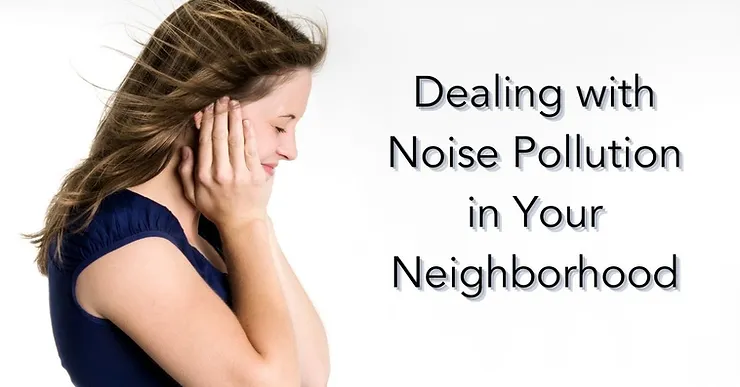
We’ve all had the experience from time to time. When you step outside your home, you are absorbed in a world of traffic, lawn care machinery, and even construction. The combination of annoying sounds can be enough to make you want to turn around to return home.
Although the experience is quite common, it is not without consequences. Noise pollution can cause a wide range of negative mental and physical health effects, and it should not be taken lightly. In the worst cases, that noise pollution can follow you indoors, making it feel like there is nowhere to escape.
Let’s consider some of the ways that noise pollution from your neighborhood can pose a risk to your health and wellbeing. Then, let’s proceed to consider steps you can take to deal with that noise pollution, promoting a good life at home!
What Are the Causes and Effects of Noise Pollution?
The most common forms of noise pollution come from traffic, construction, lawn care machinery, amplified music, airplanes and airports, and emergency vehicles. Although each of these sounds is necessary in its own way, the combination can add up to a whole host of negative effects for those nearby.
In addition, a single sound coming from this list can emit its own problematic sound at close range. For instance, those who live close to an airport are surrounded by not only the sounds of planes themselves, but also all the associated transportation and machinery necessary to keep the operation functioning.
The negative effects of noise pollution are wide-ranging. Not only can those who are consistently exposed to noise pollution develop hearing loss, but they tend to have higher rates of sleep disorders, anxiety, tinnitus, heart disease, diabetes, pain, and stress hormone imbalances.
Although noise pollution is incredibly common, with an estimated 30 million people exposed to potentially damaging noise each year in America alone, it has been difficult to impose noise abatement policies through legislation. The long list of negative effects should be enough to mandate some controls on noise pollution levels, but the interests of profit-seeking enterprises tend to outweigh the needs of individual residents of these neighborhoods where noise pollution is present.
What Can You Do to Deal with Noise Pollution?
Until legislation is effective at mandating noise abatement in residential neighborhoods, the responsibility falls to you to cope with the sounding world. The first step is to become aware of the noise level when sound becomes so loud that it is potentially damaging.
If noise crosses the crucial threshold of 85 decibels, then it cannot be endured for more than 8 hours without potentially causing hearing damage. In residential spaces, you can imagine how easy it would be for noise to cross over into potential damage. Such everyday objects as motorcycles, lawnmowers, chainsaws, power boats, and personal stereos can easily cross into dangerous territory with sustained exposure, and construction equipment can easily put you at risk of hearing damage.
Beyond these obvious risks, there are more subtle noise-producing objects that are part of many homes. The cumulative effect of these devices is sufficient to cause some of the other adverse effects of noise pollution, such as sleep disturbances, anxiety, or a feeling of unease.
If you feel like the sound environment of your home or neighborhood might fit into the category of subtle noise accumulation, there are steps you can take to reduce that sound. Placing carpet or rugs in your rooms can be quite helpful, as can turning off unnecessary fans, TVs, or radios.
Outside your home, you can construct some simple noise buffers that can make a world of difference. Trees and landscaping can create a natural buffer, while architecture and freestanding walls can block the sound of nearby traffic.
Above all, make sure to monitor your hearing health by getting regular tests. Even if you don’t think you have hearing loss, a test is a good way to establish a baseline. With that information on file, our team can keep track of your sustained ability or any progress in the direction of hearing loss.
If the time comes, hearing aids are a remarkably effective way to fill the gaps in your hearing ability while also restoring a sense of ease to your neighborhood environment.
Are you concerned about your hearing abilities? Have you noticed changes in your hearing? Contact us today to set up a consultation appointment!
